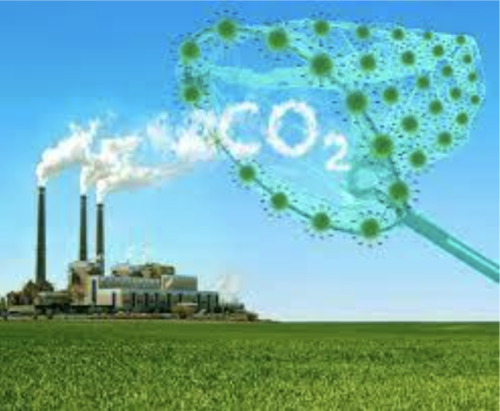Image courtesy of Michael Grossman, Cleantech.
Carbon dioxide has long been branded as an irredeemable chemical waste. But new research is showing that it can be extremely useful if harnessed correctly.
A study by graduate student Conor Rooney and his colleagues at the Wang Lab in Yale’s Chemistry Department highlighted alternative uses for this chemical waste. In their experiments, carbon dioxide was converted using electricity and water such that it could undergo bond formation with a nitrogen-containing molecule. “Carbon-nitrogen species are [very common] in a lot of the valuable chemicals that we rely on in our economy,” Rooney said. “If we can take carbon from CO2 instead of from [a] fossil fuel byproduct, then we’re able to make these carbon-nitrogen bonds in a sustainable fashion.”
The research team was able to synthesize a common class of chemicals known as N-methylamines with electrochemical reduction, a process that “hasn’t really been done [before],” Rooney said. But what is most exciting about the transformation of carbon dioxide into fuels is that it can create a green source of energy. Carbon dioxide would be converted using an energy source, which in the case of electrochemical reduction, is electricity. The reaction would, in turn, produce an energy-dense fuel that could then be used to further fuel the reaction. “It’s an energy storage idea to have a circular carbon economy,” Rooney said.
Moving forward, the Wang Lab will continue to investigate ways to create a circular carbon economy by researching sustainable methods to synthesize more carbon-nitrogen species. In the meantime, it is time to rebrand carbon dioxide as a promising resource that could play a prominent role in the future of sustainable energy.

